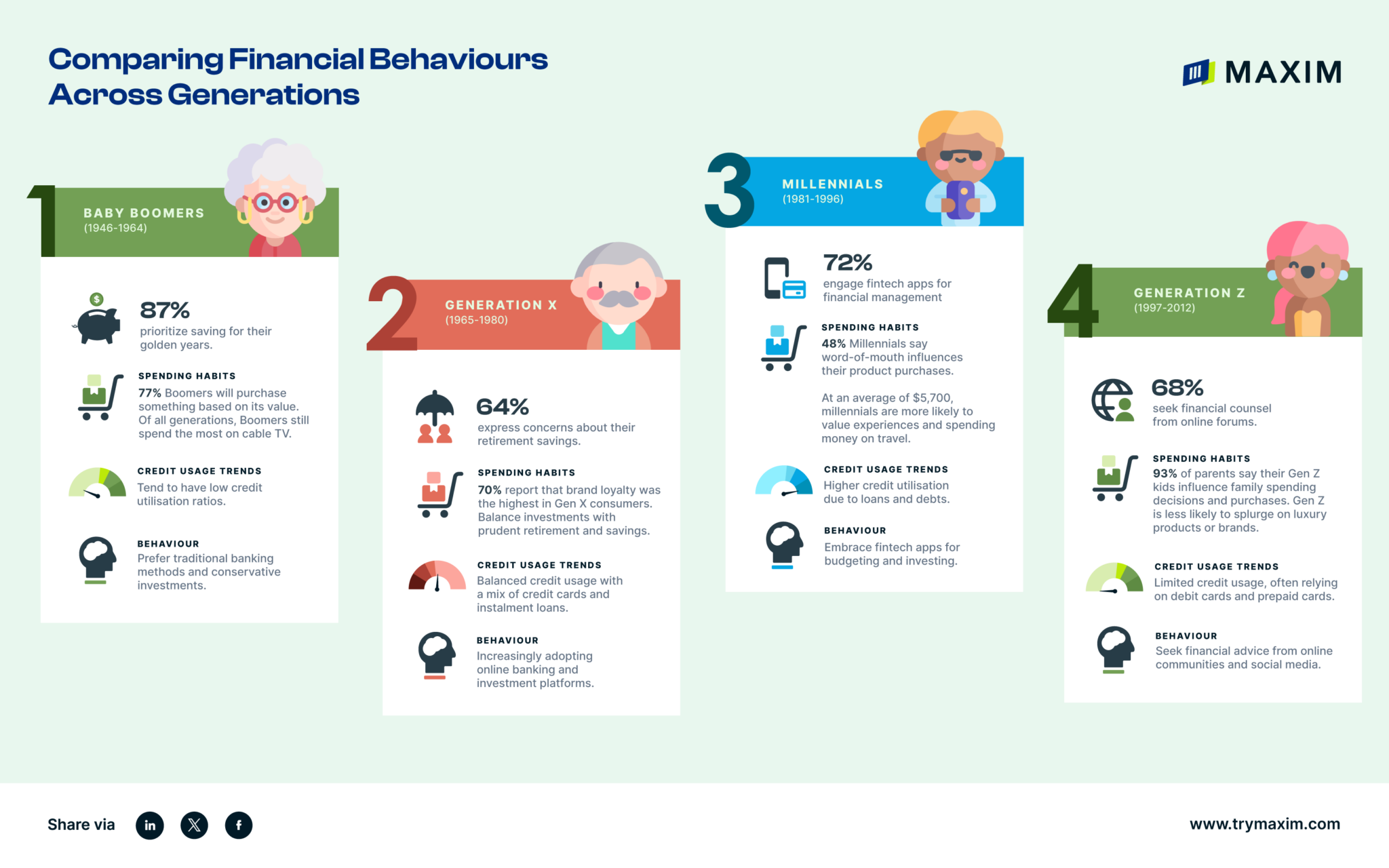
Generational Overview
| Baby Boomers
(1946-1964) |
Generation X (1965-1980) | Millennials (1981-1996) | Generation Z (1997-2012) | |
| General Overview | 87% prioritize saving for their golden years. (Retirement Income Journal) | 64% express concerns about their retirement savings. (AARP) | 72% engage fintech apps for financial management. (Research Gate) | 68% seek financial counsel from online forums. (Forbes) |
| Credit Usage Trends | Tend to have low credit utilisation ratios. | Balanced credit usage with a mix of credit cards and instalment loans. | Higher credit utilisation due to loans and debts. | Limited credit usage, often relying on debit cards and prepaid cards. |
| Spending Habits | 77% of Boomers will purchase something based on its value (Mintel)
Of all generations, Boomers still spend the most on cable TV |
70% report that brand loyalty was the highest in Gen X consumers. ( eMarketer)
Balance investments with prudent retirement and savings. |
48% of Millennials say word-of-mouth influences their product purchases. (Intrepid)
At an average of $5,700, millennials are more likely to value experiences and spending money on travel. (AFBank) |
93% of parents say their Gen Z kids influence family spending decisions and purchases. (Cassandra Report)
Generation Z is less likely to splurge on luxury products or brands. |
| Behaviour | Prefer traditional banking methods and conservative investments. | Increasingly adopting online banking and investment platforms. | Embrace fintech apps for budgeting and investing. | Seek financial advice from online communities and social media. |

About the Author: Olamide Olayemi
Olamide is a passionate finance writer dedicated to making complex financial topics accessible and engaging for everyone.


















